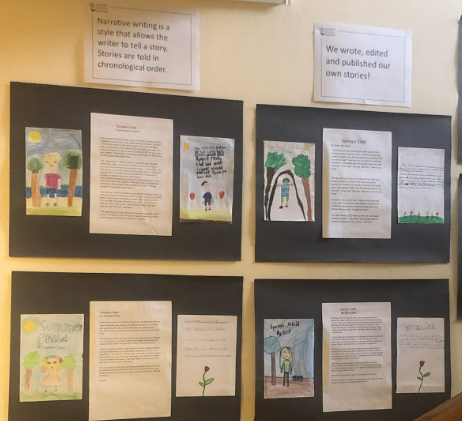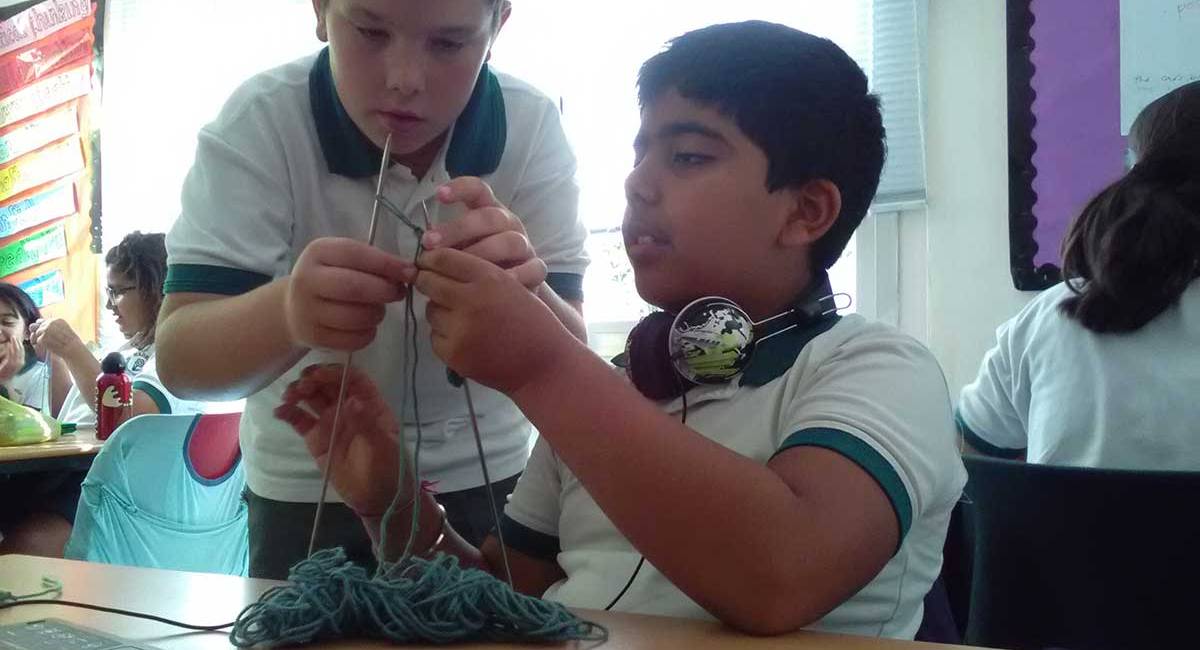How Parents can Support Writing by Diane Reynolds
Writing is often considered more challenging than reading. The reasoning behind this is because it requires more cognitive processing. When we read a book, it is already organised and written in a logical way. All we need to do is focus on is understanding the text. However, with writing, we have to come up with our own ideas and organise them. Then we have to think about grammar, spelling, punctuation and ensure that the meaning we want to express comes across in a way that can be fully understood . Writing involves holding all these pieces of information in our mind whilst revising and rewriting our ideas.
Furthermore, we have to think of how to handwrite or type accurately an then last but not least, we have to think about our audience, Who are we writing for? This whole process can be challenging for us as adults – whether we are sending a text, a letter, an email or compiling a lengthy report. We have had years of practice, but this process is so much more challenging for our children who are just learning to write and developing their ‘author’s voice’. (Kellogg,2008)
Despite writing being more complex process than reading, writing skills can be developed and children can become much better writers with practice. As a parent, you play an essential role in helping your child develop their writing skills. Here are some tips and resources that can help you support your child’s writing development:
1. Read with your child.
Read… read…read! Reading is closely linked to writing skills, so ensure you read with your child regularly. This can include reading books, newspaper articles, magazines, comics or even blogs that interest them. When your child reads, they willl be exposed to different writing styles and techniques that they can use in their own writing (Berninger, Abbott, Nagy and Carlisle, 2010). Encourage them to discuss what they have read and to think critically about the writing.
- Do they like what they have read?
- What do they dislike about what they have read?
- Does it remind them of something else they may have read or watched?
- Has anything they read made them change their minds about something. Ask them questions constantly.
2. Encourage your child to write regularly.
Writing is a skill that requires practice, so it is important to encourage your child to write regularly.
- This can include writing their own stories or rewriting a story that they have read by changing the main characters, plot or ending.
- Keeping a diary or even writing letters/ emails to friends and family members. It is so important that your child sees you write.
- Let them see you rechecking spellings or asking for suggestions of a better word. Holiday pictures are great to encourage children to write about their time away. Pictures can be stuck in a book and your child could write about events.
3. Provide positive feedback on your child’s writing.
Feedback is crucial for improving writing skills, so make sure to provide your child with feedback on their writing. This can include praising their efforts, providing feedback on areas for improvement, and helping them to revise their writing. Ask them to tell you what they could do to improve their writing and help them to do it. ( Graham & Perin,2011)
4. Help your child with the writing process.
Writing is a challenging process, so you can help your child through the different stages of writing. This can include helping them to brainstorm ideas. Ask them what they already know about a topic, share experiences with them, that could be through books, films or just talking with them. Help them to organise their thoughts. They can draw a mind map or follow a given structure that they have already used in class. Give them time to reread and revise their writing. Editing takes time, no one writes perfectly the first time. It is in the rereading and editing where the improvements take place. (Graham,Harris & Olinghouse,2007)
5. Create a supportive writing environment.
Make sure your child has a quiet and comfortable space to write. Encourage them to write at their own pace and avoid putting pressure on them to write a certain amount or in a certain way. Ensure they have the tools of writing – pencils, paper etc. As time goes by, they will use electronic devices (Dombey & Rowsell(2014) but for now, start simply.
6. Model writing behaviours.
Let your child see you writing, whether it’s an email, a shopping list, or a diary entry. Seeing you write will help them to see writing as a valuable and useful activity.
7. Celebrate your child’s writing achievements.
Make sure to celebrate your child’s writing achievements, whether it is starting or finishing a story. Perhaps they have remembered to use certain words or added punctuation that they have also been practising in class. This can help to build their confidence and motivate them to continue writing.
8. Diary
Keeping a diary is a great way for children to practise writing skills as well as expressing their thoughts and feelings. If your child is having difficulty getting started, you can offer prompts or ideas that they can write about. Just writing about their day at school or home is a great way for them to start.
9. Seek help.
If you feel like your child needs more help with their writing, there are online resources you can look at to help your child improve their writing skills. You can also reach out to your child’s teacher for advice and tips.
By following these tips and taking advantage of the available resources, you can play an important role in helping your child develop their writing skills. Encouraging your child to read widely, write regularly, and use the right tools are all key steps in helping your child become a confident, successful writer.
Here are some additional resources that you can read in order to support your child’s writing development:
References
Berninger, V. W., Abbott, R. D., Nagy, W., & Carlisle, J. (2010). Growth in phonological, orthographic, and morphological awareness in grades 1 to 6. Journal of Psycholinguistic Research, 39(2), 141-163. This study highlights the importance of phonological, orthographic, and morphological awareness in writing development, and offers strategies for developing these skills in primary school children.
Dombey, H., & Rowsell, J. (2014). Developing young writers in the digital age. English Teaching: Practice and Critique, 13(1), 6-19. This article provides practical tips for developing writing skills in primary school children in the digital age, including using technology to enhance writing instruction and using multimodal approaches to writing.
Graham, S., Berninger, V. W., Abbott, R. D., Abbott, S. P., & Whitaker, D. (1997). The role of mechanics in composing of elementary school students: A new methodological approach. Journal of Educational Psychology, 89(1), 170–182. https://doi.org/10.1037/0022-0663.89.1.170
Graham, S., Harris, K. R., & Olinghouse, N. G. (2007). Addressing executive function problems in writing: An example from the self-regulated strategy development model. In G. Schraw & J. Impara (Eds.), Issues in the measurement of metacognition (pp. 149-174). IAP. This article offers specific strategies for addressing executive function problems in writing, such as planning, organising, and revising, using the self-regulated strategy development model.
Graham, S., & Perin, D. (2011). Writing instruction in elementary classrooms: A review of the evidence. Journal of Educational Psychology, 103(3), 676-696. This article offers evidence-based recommendations for improving writing instruction in elementary schools, including teaching writing processes, providing feedback, and teaching sentence combining and elaboration strategies.
Hidi, S., & Renninger, K. A. (2006). The four-phase model of interest development. Educational Psychologist, 41(2), 111–127. https://doi.org/10.1207/s15326985ep4102_4
Kellogg, R. (2008) ‘Training Writing Skills: A Cognitive Developmental Perspective’, Journal of Writing Research, 1 (1), pp. 1–26. Article that describes the challenge of developing writing skills from childhood to adulthood. https://www.jowr.org/index.php/jowr/article/view/759/823
Puranik, C. S., & Lonigan, C. J. (2011). Emergent writing in preschoolers: Preliminary evidence for a theoretical framework. Reading and Writing, 24(2), 145-174. This article presents a theoretical framework for understanding emergent writing in preschoolers, and offers practical tips for developing early writing skills in primary school children.
Useful websites
https://www.nwp.org/blog/teaching-writing-read-think-write-repeat
https://imaginationsoup.net/seriously-fun-writing-with-kids/
https://www.readingrockets.org/writing-sos-with-experts#ideas
https://www.readingrockets.org/article/when-writing-hard
Further Reading
Cambridge University Press
https://languageresearch.cambridge.org/images/CambridgePapersInELT_YLWriting_2019_ONLINE.pdf
Education Endowment Foundation
https://educationendowmentfoundation.org.uk/education-evidence/guidance-reports/literacy-ks2
Great Schools
https://www.greatschools.org/gk/articles/tips-to-support-writing-at-home/
https://www.childmags.com.au/6-ways-parents-can-help-their-primary-kids-learn-to-write-well/
National Literacy Trust
https://files.eric.ed.gov/fulltext/ED521654.pdf
Oxford Owl
https://home.oxfordowl.co.uk/english/primary-writing/
Reading Rockets
https://www.readingrockets.org/article/7-great-ways-encourage-your-childs-writing
The School Run
https://www.theschoolrun.com/helping-your-child-learn-write
Ways Parents Can Support Reading and Writing at Home Teachers College Reading and Writing Project
https://www.ludlowtaylor.org/uploads/8/4/8/4/84841604/parents_support_reading_writing.pdf














